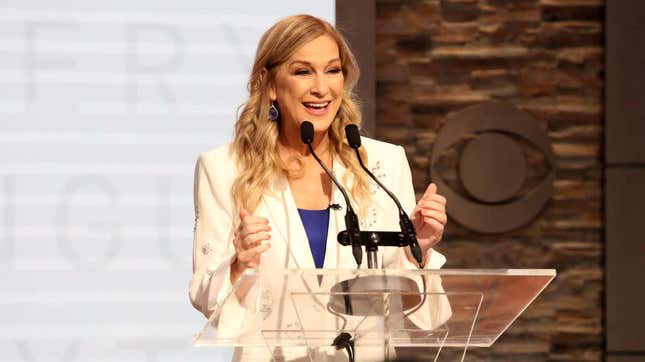Grammys Chief Rips Racist and Sexist Academy's 'Boys' Club' in Filed Complaint
Latest

After Grammy chief Deborah Dugan was removed from her position just ten days before the ceremony, employees within the organization told reporters that it might have been a “coup” connected to Dugan trying to reorganize and repair the Recording Academy following accusations of racism and misogyny. Now, according to a messy and revealing 44-page complaint Dugan filed on Tuesday with the Equal Employment Opportunity Commission, she’s revealing to what extent the Academy needs an overhaul, alleging sexual harassment, voting irregularities and conflicts of interest, and the allegation that former Grammy chief Neil Portnow raped an artist.
The complaint alleges that even though the Academy told press that Dugan was fired because a misconduct claim had been filed by a female member of staff, Dugan notes in her filing that she was only fired after she wrote a memo to HR outlining conflicts of self interest among board members and calling out the organization for being a “boys’ club.”
Dugan also alleges that after taking over Portnow’s job following his comments that women need to “step up” at the Grammys to win awards, she discovered he had been accused of rape by a “foreign” artist who was also a member of the Academy. This artist accused Portnow of raping her after a performance she gave at Carnegie Hall. After this allegation was brought to Dugan the Board asked that she hire him as a consultant for $750,000 a year, which she refused. Dugan also alleges she was offered significantly less compensation for the position than what Portnow received.
The complaint also gives light to the nomination and awards process for the Grammys and how deeply white and male these voting bodies can be. The complaint points out that in December 2019, the Task Force assembled to overhaul diversity in the Academy found that “biases affecting women, people of color and LGBTQ creators in the music business are deeply ingrained” and between “2012 and the present, the Board has been approximately 68% male and 69% Caucasian.”
-

-

-

-

-

-

-

-

-

-

-

-

-

-

-

-

-

-

-

-

-

-

-

-

-

-

-

-

-

-

-

-

-

-

-

-

-

-

-

-








































